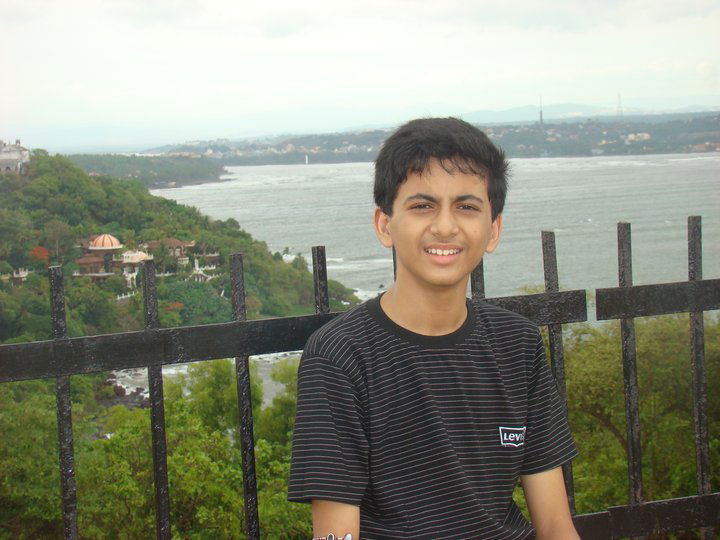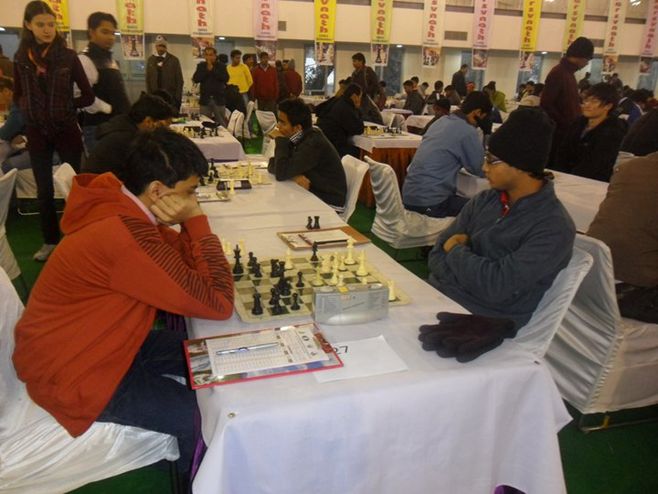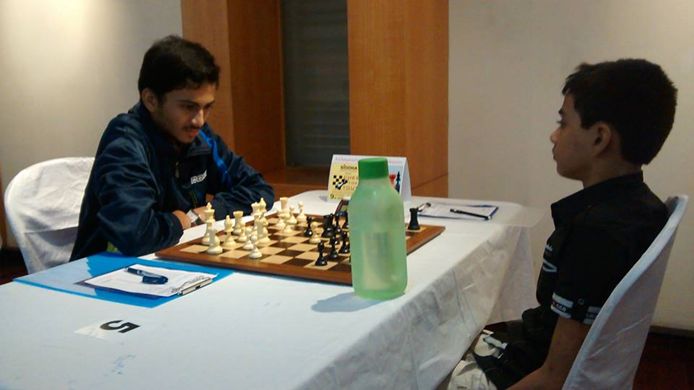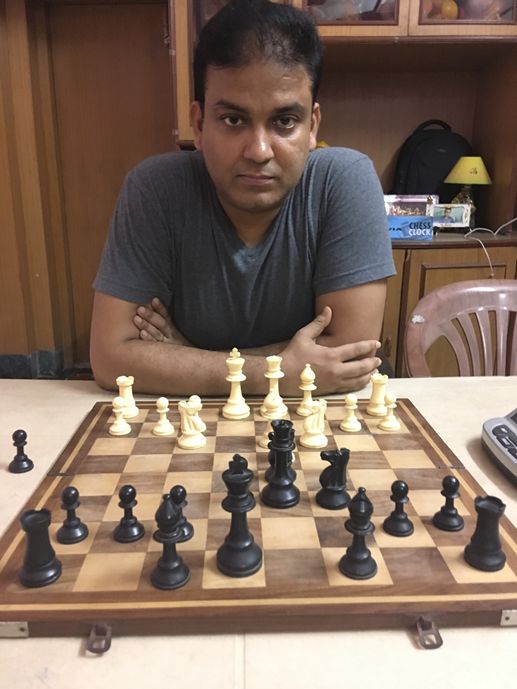How 2106 rated chess player cracked GATE examinations and scored All India Rank 9
Chandrashis Mazumdar from West Bengal is rated 2106 and is the former commonwealth under-12 bronze medalist. He was an extremely ambitious chess player, but at some point academics took the front seat and he became an Engineer. His real challenge came when he had to appear for the GATE examination. GATE is a national level post graduation examination conducted by the IITs and IISc Bangalore to select their candidates. Naturally, it is quite tough to crack it. But, Chandrashis, not only passed with flying colours but aced the examination with an All India Rank 9. How did he do it and how did chess help this youngster to hold his own in such a tough competitive exam? In this article Chandrashis reveals his secret.
How chess helped me to crack GATE and score an AIR 9
By Chandrashis Mazumdar

In this article, I will explain how Chess played a pivotal role in helping me obtain All India Rank 9 in the Graduate Aptitude Test in Engineering (GATE) 2018 in Computer Science. I must admit I was pleasantly surprised and extremely glad when ChessBase India gave me a platform to express some of my thoughts as to how Chess affects Academics. But first things first. Let me introduce my chess-self a bit. It won’t be the usual success story we eagerly wait to read on this very portal but I implore you to read on!
My parents introduced me to the world of Chess at the age of 6 way back in 2002 at Gorky Sadan, Kolkata. My primary school years were spent playing various age-group Nationals and local tournaments. One of the main problems I faced during those tournaments was that my losses tended to be consecutive which was attributed to lack of mental toughness. Years went by and I obtained an ELO rating of exactly 2000 at the Sangli Rated Tournament in the summer of 2006. I was in Standard V then, with a lot of youth left in me and not a lot of Academic pressure to deal with. With regards to my mental toughness, regular grinds at a highly competitive level helped me improve, and I managed to win an age-group Bronze Medal in the Commonwealth Championship at Nagpur (2008). In the Nationals, my final ranking stayed mostly within 15.

At the same time, pressure was gradually increasing on the Academic front. By the time I had gotten into the groove of professional chess, I was in Standard IX with a year away from my Board Examinations. In the 2010 Mumbai Mayor’s Cup, I missed an International Master Norm even when I had to make 1 point in the final 2 rounds (I lost both the games with white pieces). It was then that I had to make a tough decision to leave full-time chess and focus purely on Academics, like so many people around the world do. The number of tournaments decreased to a few local ones here and there.

So now one might ask what has Chess got to do with my attempting GATE and joining the Department of Computer Science and Automation at the Indian Institute of Science? I will try to answer this question below. In the process, I might have to use a few technical terms from Computer Science, but I will try to make it as informal as possible in my attempt to drive home the point.
Holistic Development
Even though I haven’t managed to reach the top in Chess, there has been a significant personality development through this game. For one, Chess enables you to develop a holistic view towards life when you travel to different places to play and interact with various individuals. This trait definitely helps when preparing for a competitive examination like GATE because you have to tackle a variety of subjects each of which may be part of the curriculum but may be of a different flavour. This may sound strange but it holds true in my case since being from an Electronics background, I had to develop my Computer Science skills mostly from scratch.
Handling Time Pressure
Chess helps you to handle pressure situations better and this is one of the most fundamental points. I must mention here that I attempted 3 questions (5 marks out of 100) in the final few minutes each of which turned out to be correct and probably helped my score. I feel your system responds more accurately to pressure when you have played Chess for a significant length of time (time pressure?!).
Increased calculation speed
For those familiar to Computer programming, there is a significant number of questions in the GATE paper which ask you to find the output of a computer program. These questions tend to have repetitive calculations and if you can calculate fast, you will ace these questions comfortably, and these questions form a bulk of the paper. Chess teaches you how to calculate, doesn’t it (time pressure again!)?
Deeper Thinking Prowess
All of us are familiar with the Windows Operating System. If your operating system fails, it is most likely that you won’t be able to do anything useful with your machine! GATE asks you to think of scenarios in which a given OS design may fail. Again, in these kinds of activities, the habit of assembling candidate moves helps you to quickly come up with a handful of such possibilities.
Better Mental Health
I must elaborate a bit on how I spent the last few months before GATE. In the midst of serious preparation coupled with boring Final Year Engineering stuff, I had a sudden desire to undergo serious chess training again. I trained for around 15 sessions with International Master Roktim Bandyopadhyay who incidentally lives very close to my house!

During those sessions, he made me understand that my quality of play hadn’t declined and I could actually continue Chess again! This increased my confidence a lot, and coupled with the quality of training, I even managed to come 5th in an All Bengal Rapid Tournament, a week after GATE after not having touched the board for a LONG time!! Also, the rigorous sessions definitely sharpened my thinking ability (absolutely essential for a competitive exam) apart from leaving me in a mentally positive state which I feel was one of the most important factors which helped me perform well in the exam.
To all the young schoolkids out there, play Chess and play as much as you can! Chess will only have a positive influence on your academics.
Related:
When I comb my hair, I only think about my hair

